About two months passed since the fall of Syria’s former president Bashar al-Assad. Türkiye is thought to be one of the key actors behind the march of the HTS forces through Damascus, the fall of Assad and now in formation of the new government.
Still, Turkish government frequently makes statements articulating concerns on Syria’s “territorial integrity” and the “terrorism” in northeast of the country. After all, Türkiye and Israel seem to be at odds in a series of critical issues in the region.
Two Turkish experts, Fikret Akfırat and İsmet Özçelik, on Türkiye’s regional issues evaluated this period of two months.
Fikret Akfırat: At this stage, Türkiye has no choice but to rely on its own national capabilities
It has been nearly two months since the fall of Bashar al-Assad government. Just as it took only ten days for the government to collapse, developments in this short period of two months have unfolded at a rapid pace. One point of consensus across all analyses is: almost no actor, including HTS, anticipated such a rapid fall of the Assad government. Today, a new administration is in place in Damascus continuously hosting foreign delegations, particularly from Western countries.
Russian delegation
One of its latest visitors was a delegation from Moscow. The Russian delegation, arrived in Damascus on January 28, included Alexander Lavrentiev, Putin’s Special Envoy for Syria, Mikhail Bogdanov, his Special Representative for the Middle East and Africa and Deputy Foreign Minister. While we don’t know the details, the visit itself signals Moscow’s stance on the post-Assad era. At the same time, it highlights the new Syrian leadership’s interest in maintaining ties with Russia. (Some analysts point out to the Syria’s dependence on Russian wheat). Just a day after this meeting, Ahmad al-Sharaa was declared the country’s interim president.
End of the status quo of the past 13 years
The crux of the matter is this: before Assad’s government fell on December 8, two opposing blocs had shaped Syria’s political and military landscape: On one side stood Türkiye, Russia, and Iran -sometimes competing, but cooperating at the Astana talks- on the other was the Atlantic camp, led by the US, which had supported the PKK and provide a de facto autonomous region in northeastern Syria. Assad’s fall dismantled the status quo of the past 13 years.
The most significant development in this new phase has been Donald Trump’s return to the US presidency. His moves such as his stance on Canada and Greenland, Elon Musk’s involvement in German domestic politics and his relations with the UK government have already disrupted cohesion within the Atlantic bloc. Meanwhile, a new dynamic is emerging: Arab states and Türkiye, despite their past differences, now appear more aligned in their commitment to Syria’s territorial integrity and political unity.
Since Bashar al-Assad left the country on December 8, there have been a change in Iran’s wording: Official Iranian publications have gradually replaced terms like “terrorists” with descriptions such as “armed insurgents” when referring to HTS and other factions. We saw some statements from Iranian officials criticizing the former Assad administration. This suggests that, while not as swiftly as Russia, Tehran may also be preparing to normalize ties with the new government in Damascus.
In the simplest terms, every state is vying for maximum gain in shaping Syria’s emerging structure. In other words, a multidimensional struggle for leverage over the new administration in Damascus is underway.
Türkiye and Syria’s territorial integrity
The first high-profile visitor to Syria’s new leadership was Turkish intelligence chief İbrahim Kalın. Soon after, Foreign Minister Hakan Fidan met with interim President Ahmad al-Sharaa, with footages depicting “close relationship” between the two. Considering this and some other developments in the background, analyses reflecting the perspectives of Western capitals mostly conclude that Türkiye has been the biggest winner in the new situation in Syria. However, despite apparent gains, Ankara’s ultimate strategic interest lies in securing Syria’s territorial integrity. For this, eliminating the PKK/YPG and its so-called autonomous administration is essential.
At this stage, Türkiye has no choice but to rely on its own national capabilities. Given its current military and political advantage on the ground, there are convenient circumstances for Ankara to pressure Washington into abandoning its support for the PKK/YPG.
Ismet Özçelik: With Assad’s fall, Israel is now in a strategic relief
Two months after Bashar al-Assad’s fall, one clear consequence has been the growing aggression and boldness of the US and Israel.
Successes of the resistance
Despite the assassination of their leaders in the war that began on October 7, 2023, neither Hamas in Gaza nor Hezbollah in Lebanon has ceased their resistance. They have suffered nearly 60,000 casualties. Yet Israel has failed to achieve its stated objectives in the beginning of the war.
Besides, global outrage against Israel has surged, and the US has not been immune to the backlash. University students across the US, millions of protesters in cities like London and Paris, have taken to the streets in support of Gaza, condemning Israel and its backers.
Also, Israel has faced serious challenges. Yemen and Iran launched direct strikes, while Hezbollah’s missiles penetrated the “Iron Dome” leaving no place in Israel secure. Civilians were forced to stay in shelters.
Faced with these realities and growing divisions emerged between the government and the military, Netanyahu had to accept a ceasefire, first with Hezbollah, then with Hamas.
Israel as the winner of Assad’s fall
However, despite these setbacks, the fall of Assad provided Israel a significant strategic advantage and a morale boost. With the involvement of Mossad, the CIA and MI6, HTS remained intact and even strengthened in Idlib. Türkiye’s involvement in this process has also been noted. (Many details of this period remain still unclear).
Meanwhile, Trump’s return to the presidency brought immediate policy shifts. He announced a new plan for Gaza and cut US’s funding to UN agencies providing humanitarian aid to Palestinians. Netanyahu followed up with a statement: “Ladies and gentlemen, all of this happened in just two weeks. Can you imagine where we will be in four years? I can”. He then declared, “The roar of the Lion of Judah is echoing loudly across the Middle East. Israel has never been stronger”.
Before the fall of Assad, Gaza was under siege, yet support still found its way in. Hezbollah relied on Syria as a logistical lifeline. Iran used the same route for its operations. However, with Assad’s fall, Israel is now in a strategic relief. It secured control over the Golan Heights and expanded its occupation into key Syrian territories.
The HTS-led administration remained silent as Israel deepened its military presence in Syria. Israeli forces struck military facilities, detonated weapons depots and carried out around 500 attacks without a single objection from the new Syrian rulers. Golani even declared, “We have blocked support for Hezbollah” offering Israel full assurances.
With Assad gone, the US and Israel escalated their aggression and boldness. Trump’s proposal for the forced displacement of Palestinians in Gaza is a direct consequence of weakening of the resistance front.







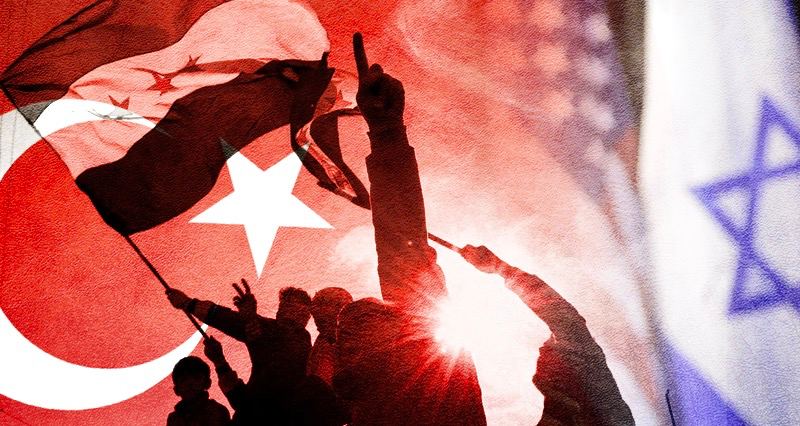
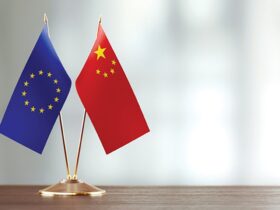
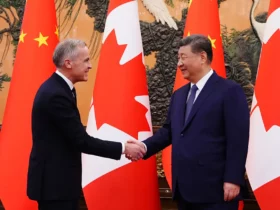
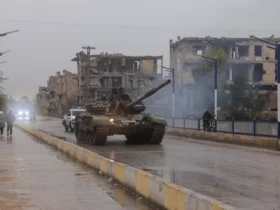

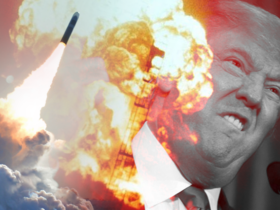
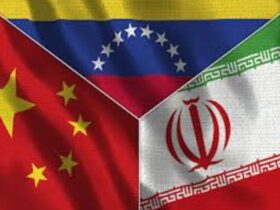



Leave a Reply